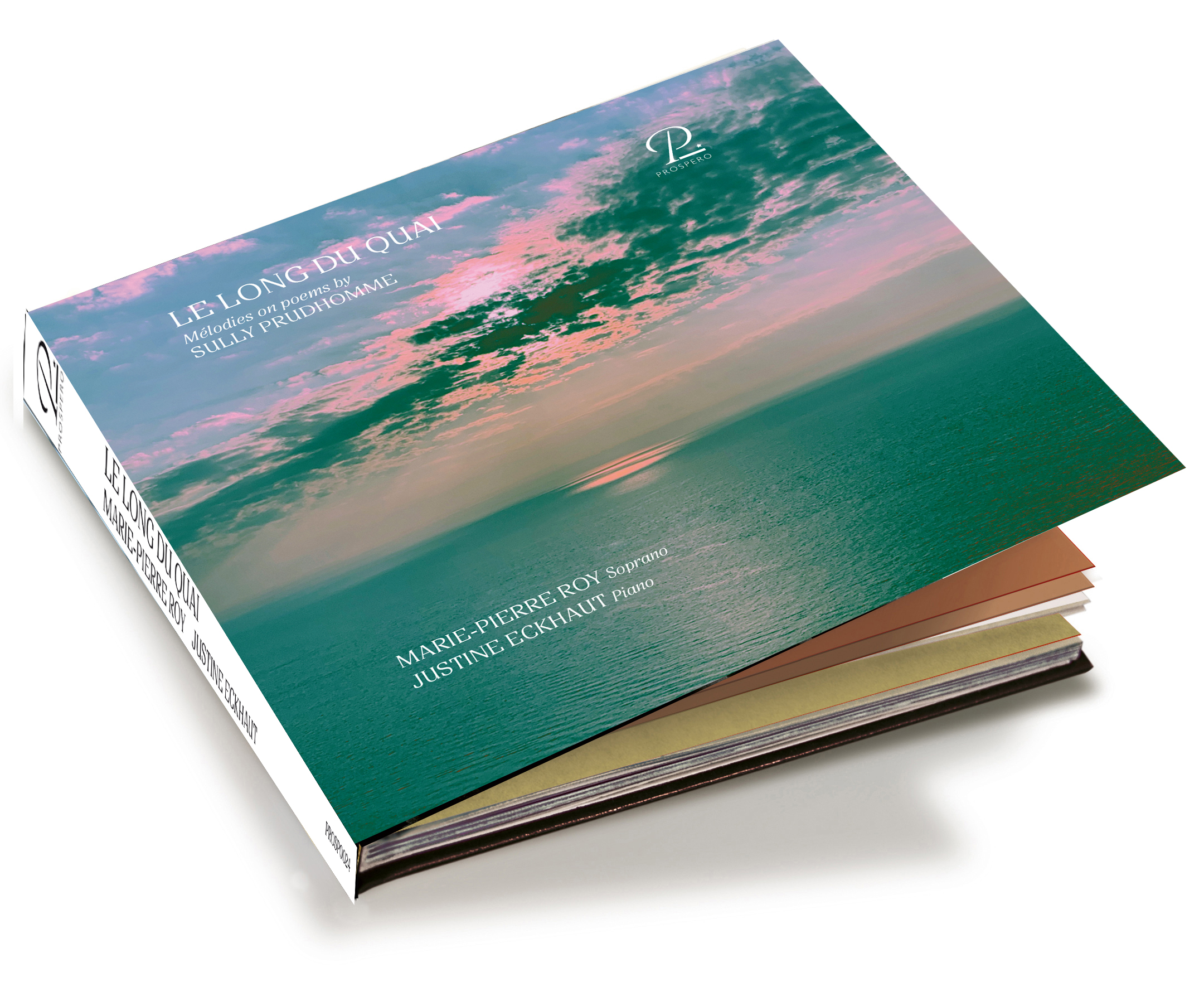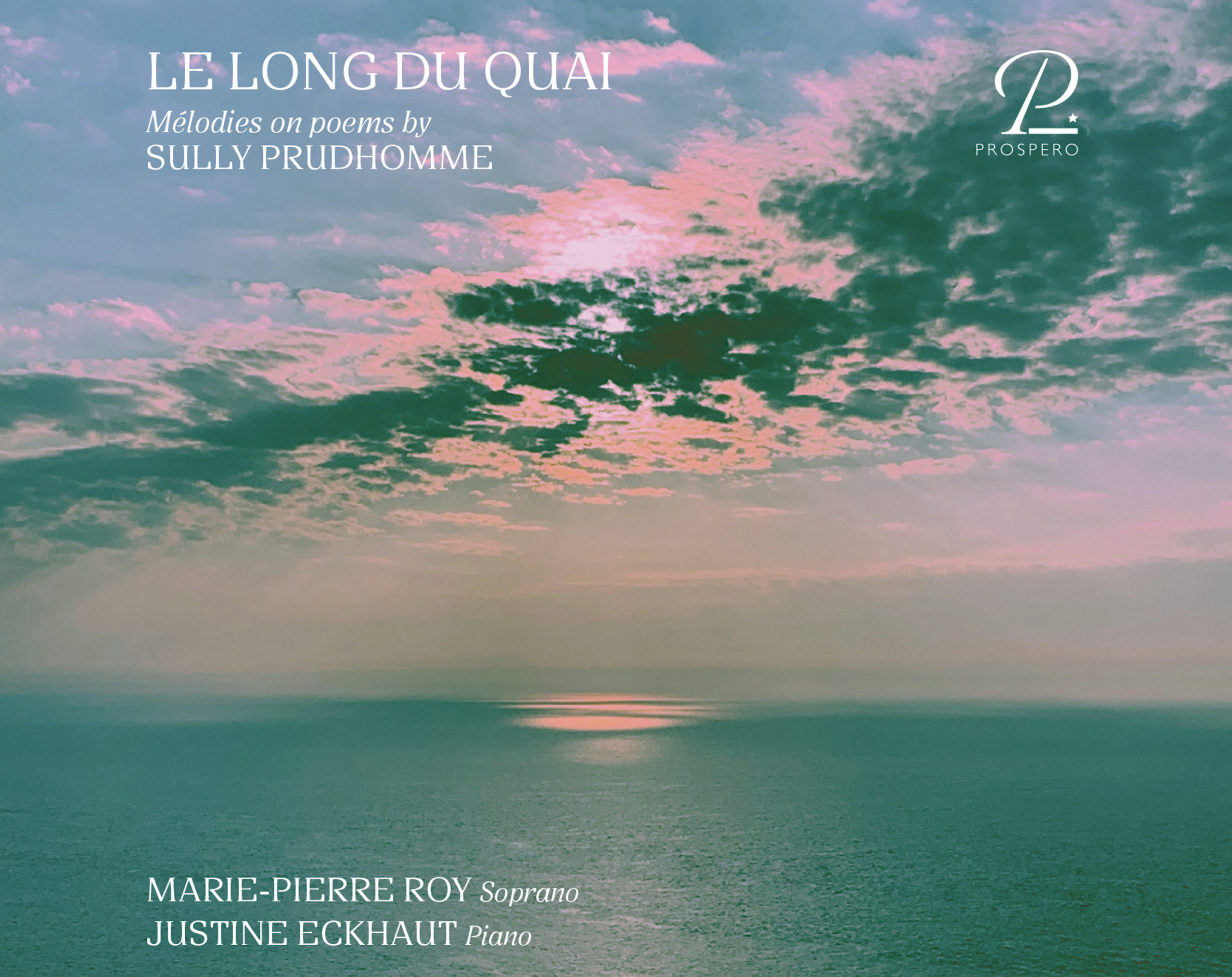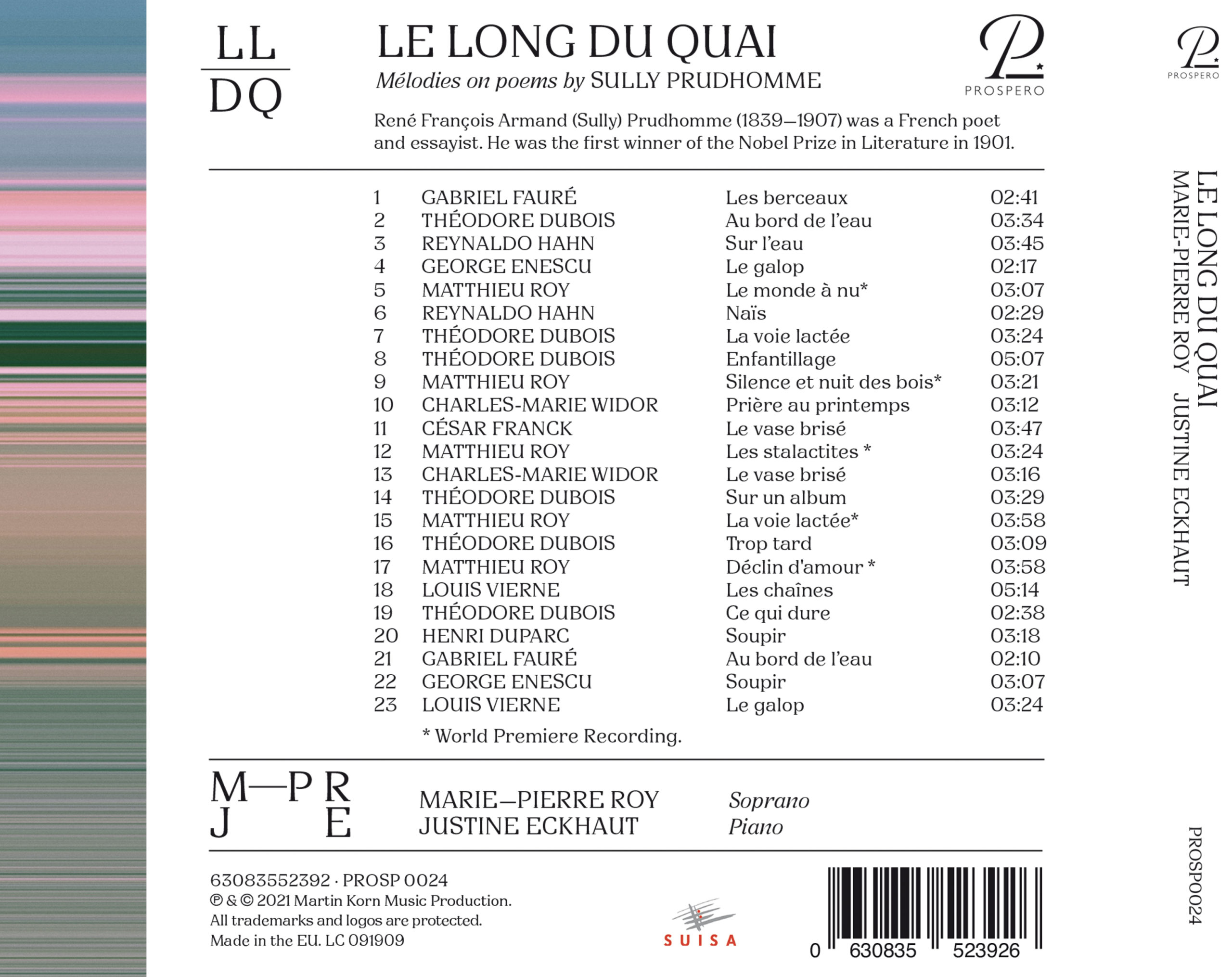Le Long du Quai – Des Mélodies d’après des poèmes de Sully Prudhomme
Le Long du Quai – Des Mélodies d’après des poèmes de Sully Prudhomme

About New Album
Sully Prudhomme – der erste Nobelpreisträger für Literatur. Seine Gedichte haben eine Vielzahl von Musikern zu wunderbaren Kompositionen angeregt, darunter Gabriel Fauré, George Enescu oder Louis Vierne. Die Sopranistin Marie-Pierre Roy und die Pianistin Justine Eckhaut haben eine eindrucksvolle Auswahl dieser Lieder zu einem faszinierenden Album zusammengestellt, welches die stilistische Bandbreite der Liedkomposition um die Wende zum 20. Jahrhundert und darüber hinaus demonstriert.
Sully Prudhomme befasst sich mit Metaphysik, Logik, Moral, Ästhetik, Soziologie und verkörpert damit perfekt die parnassianische Bewegung, die sowohl individuellen Ausbrüchen als auch politischem Engagement feindlich gegenübersteht und vorgibt, die Poesie der Naturwissenschaften, der Geschichte und der Philosophie anzunähern. Seine Texte befassen sich mit innerer Analyse, der Suche nach dem Ideal und dem Aufstieg. Er wurde 1882 Mitglied der Académie Francaise und erhielt 1901 den ersten Nobelpreis für Literatur.
Als Kunst der Andeutung und der Raffinesse, ist das französische Kunstlied, die Mélodie, eine weite Welt für sich; eine Welt, in der sich Poesie und Musik miteinander verbinden. Lange Zeit dem Salon vorbehalten, beruht sie genau auf der Balance zwischen einem erstklassigen Text und einer Partitur, die Rücksicht auf Intimität bei der Verbindung von Stimme und Klavier nimmt.
Im Repertoire dieses Albums wird der Interpret zum Erzähler, der Pianist zum Orchestrator. Die von Gounod und Berlioz ins Leben gerufene Mode der Mélodie blüht richtiggehend auf bei Komponisten wie César Franck, Théodore Dubois und Reynaldo Hahn aber auch bei den „Neuerern» wie Chausson, Debussy, Ravel und Poulenc; an ihrer Seite der unbestrittene Meister des Genres: Gabriel Fauré. Der Beginn des 20. Jahrhunderts repräsentiert damit das «goldene Zeitalter» dieses wunderbaren Lied-Repertoires.
*
Sully Prudhomme – the first Nobel Prize winner for literature. His poems have inspired a variety of musicians to write wonderful compositions, including Gabriel Fauré, George Enescu and Louis Vierne. Soprano Marie-Pierre Roy and pianist Justine Eckhaut have assembled an impressive selection of these songs into a fascinating album that demonstrates the stylistic range of song composition at the turn of the 20th century and beyond.
Sully Prudhomme is concerned with metaphysics, logic, morality, aesthetics, sociology, and thus perfectly embodies the Parnassian movement, hostile to both individual outbursts and political engagement, purporting to bring poetry closer to the natural sciences, history, and philosophy. His writing is concerned with inner analysis, the search for the ideal, and advancement. He became a member of the Académie Francaise in 1882 and received the first Nobel Prize for Literature in 1901.
An art of suggestion and refinement, the French art song, mélodie, is a vast world unto itself; a world where poetry and music combine. Long the preserve of the salon, it relies precisely on the balance between a first-rate text and a score that shows consideration for intimacy in the marriage of voice and piano.
In the repertoire of this album, the performer becomes the narrator, the pianist the orchestrator. The mélodie fashion, initiated by Gounod and Berlioz, really blossoms with composers such as César Franck, Théodore Dubois and Reynaldo Hahn, but also with the «innovators» such as Chausson, Debussy, Ravel and Poulenc; at their side the undisputed master of the genre: Gabriel Fauré. The beginning of the 20th century thus represents the «golden age» of this wonderful kind of repertoire.
*
Le Long du Quai, mélodies d’après des poèmes de Sully Prudhomme, dont beaucoup n’ont jamais été enregistrées auparavant.
Artiste et intellectuel, Sully Prudhomme sculpte, dessine, publie des ouvrages de critique d’arts, traduit Lucrèce. Il traite de métaphysique, de logique, de morale, d’esthétique, de sociologie, et incarne parfaitement en cela le mouvement parnassien, hostile aux effusions individuelles comme aux engagements politiques et qui prétend nourrir la poésie des sciences naturelles, de l’histoire et de la philosophie, et ainsi exprimer le pathétique de la vie humaine. Sa voix poétique se teinte de mélancolie et révèle une sensibilité délicate, tourmentée. Ses textes traitent d’analyse intérieure, de quête de l’idéal et d’ascension — à la fois spirituelle et savante. Il devient membre de l’Académie française en 1882, reçoit le Premier prix Nobel de Littérature en 1901.













